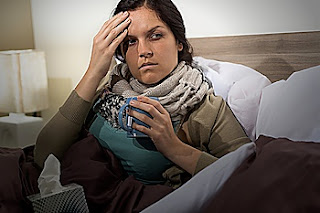Here Comes Flu Season
With flu season approaching, it is important to for you to keep yourself as well-protected as possible against potential outbreaks. By following these flu season tips, it can be easy for you to protect yourself and your family from unwanted illness this holiday season.
Keep Your Medicine Cabinet Full
One of the most important things that you can do is to prepare beforehand. Take the time to pick out the medications you might need for the winter and make sure that existing bottles are not expired. This can help you stay prepared for all types of potential bugs, including the flu and common cold. Some recommended medicines to keep around the house include pain relief medications, fever relievers, decongestants, antihistamines, cough drops and cough medicines. Check in with your doctor and be sure to stock up on the appropriate strength medications if you have children that might get sick.
Keep Other Medical Supplies Around
In addition to medications, it is important to be prepared for being snowed in. Having a good thermometer and batteries around the house is a sure way to reduce the risk of a number of issues, such as medical devices failing. Additionally, it might not hurt to have a humidifier around the house if you or a loved one struggles with asthma and other breathing problems during the winter. Additionally, it can be a good idea to keep other comfort basics around the house, such as hand sanitizer, tissues and soaps designed to be antibacterial. These supplies can help you keep the house cleaner and better protected against bacteria and viruses.
Wash Your Hands Frequently
One of the biggest ways in which diseases are spread during the holidays is through hand contact. Whether ill individuals place their hands on railings that you later touch, or whether you handle money that was touched by someone with a cold during shopping, keeping your hands washed and clean regularly is one of the most important things that you can do during the holidays. Practice proper hand-washing by using antibacterial soap and spending at least two minutes washing your hands. Be sure to get your wrists and between your fingers as well, as these places are often missed.
Avoid Touching Your Face
Another good way to avoid getting sick this holiday season is to try not to put your hands near your face. If you have any bacteria on your hands, one of the surest ways to guarantee a pathway into the lungs or mucous membrane is to place your hands on your face. Though washing your hands can be a great way to reduce the risk of infection overall, it is important for you to exercise caution when you are not in immediate access to antibacterial sanitizer or a washroom.
Practice Healthy Habits
Another important thing that anybody can do to reduce their risk is to prepare for the long-term with healthy habits. Try to exercise regularly and eat a diet that is high in vitamins, minerals and fiber. When your body gets the nutrients it needs, it is able to muster up a stronger defense force against all types of illnesses. Eat healthy and make sure that you do not overload your body with unnecessary calories and sugars to improve your overall sense of well-being.


Contact Form
Sosial Buttons